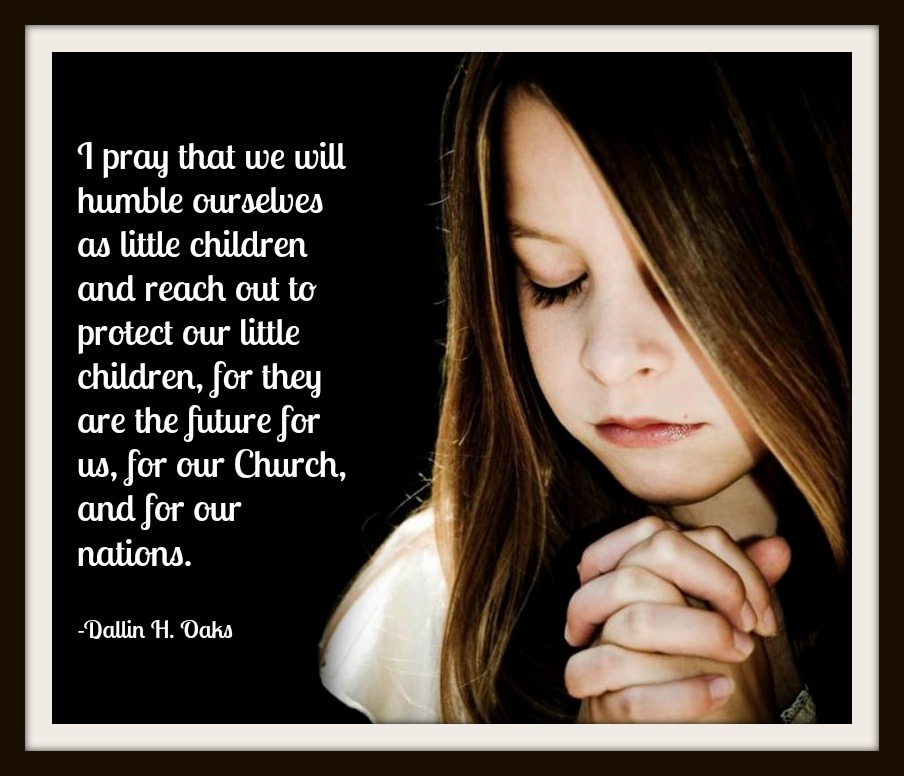The debate over same-sex marriage has taken center stage in the political and cultural arenas. Proponents argue: What’s wrong with same-sex marriage? Doesn’t everyone have a right to happiness and a family—why should a marriage just be between a husband and wife? And how does someone else’s same-sex marriage hurt your marriage? Not everyone who opposes same-sex marriage can articulate answers to these questions. A recent Meridian Magazine editorial titled “For Those Who Can’t Articulate What’s Wrong with Same-Sex Marriage” said:
“Not everyone who opposes marriage redefinition can relate a coherent argument about its problems. Not nearly enough of us can say why this debate matters or analyze if marriage has a chance of surviving these aggressive thrusts at redefinition… Lacking for words, same-sex marriage opponents may merely stumble trying to answer that question, feeling awkward and somewhat embarrassed. (After all, haven’t they heard often enough that if they oppose the redefinition of marriage they are a hater, a bigot?)”
The editorial continues:
“There’s a hazard in not understanding this issue well. Those who can’t articulate their position, often can’t hold on to it. Yet this same-sex marriage policy debate that the Supreme Court has thrust itself into, may have the most far-reaching social implications of any issue of our time.”
 The editorial strongly encourages those who may be in this situation to read an article in National Review titled “Marriage and Politics: Why the debate matters; why the conjugal view can prevail.” The article, written by Sherif Girgis, Ryan T. Anderson and Robert P. George—the authors of “What is Marriage? Man and Woman: A Defense” — asks and answers some pertinent questions regarding the issues of same-sex marriage and politics:
The editorial strongly encourages those who may be in this situation to read an article in National Review titled “Marriage and Politics: Why the debate matters; why the conjugal view can prevail.” The article, written by Sherif Girgis, Ryan T. Anderson and Robert P. George—the authors of “What is Marriage? Man and Woman: A Defense” — asks and answers some pertinent questions regarding the issues of same-sex marriage and politics:
“Why worry about same-sex marriage in particular? Why worry about marriage policy? If marriage policy does matter, why not ‘broaden the definition’ of marriage to promote family values? How would recognizing same-sex relationships as marriages harm marriage? Isn’t ours a losing cause, or at best a secondary one? And why privilege anyone’s sectarian values at all—doesn’t that compromise freedom of equality?”
The authors of “Marriage and Politics” begin:
“Long before the debate over same-sex marriage, a ‘marriage movement’ was launched to explain why marriage was good for husbands and wives faithful to its demands, for their children, and for society more broadly.”
In 2003, when the Massachusetts Supreme Court handed down a ruling recognizing same-sex partnerships as marriages, leaders of the marriage movement had no choice, according to the article. They had to decide if recognizing same-sex relationships as marriages would strengthen the marriage culture or further weaken it, according to the article.
“They concluded that same-sex marriage was not ultimately about expanding the pool of American couples eligible to marry. It was about cementing a new idea of marriage into the law—the very idea whose baleful effects they had spent years fighting. That idea, that romantic and emotional union is all that makes a marriage, could not explain (as anything other than sentiment or personal preference) or support the stabilizing norms of permanence, monogamy, and sexual exclusivity that make marriage fitting for family life. It could only weaken them.
“Indeed, it had already begun to do so. Disastrous policies such as no-fault divorce were motivated by the idea that a marriage is made by romantic attachment and satisfaction—and comes undone when these fade. The marriage movement’s leaders knew that to keep any footing for rebuilding the marriage culture, they had to fight the formal and final redefinition of marriage as essentially romantic companionship.”
The authors say that we need to “focus both on politics and on culture, because each can only reinforce—or undermine—the other.”
“How much does social regulation matter? History is our lab, and the results are clear. Every political community that has lasted long enough to leave a trace of itself has regulated male-female sexual relationships. Why? These alone produce new human beings— highly dependent little creatures who have the best chance of reaching physical, moral, and cultural maturity and of contributing to the community when reared by their own mothers and fathers in the context of marriage.”
In short, we have a moral obligation to our children— and/or our future children, our children’s children and generations beyond—to do the right thing by them. They come into this world innocent and dependent upon their parents for love, nurturing, protection and guidance. Our society has become more focused on what is politically correct and less focused on what is morally correct and best for our children. The authors of this piece are very clear: Children have the best chance in life when reared in a home with their own mother and father.
They continue:
“But family stability doesn’t happen by chance. It requires a strong marriage culture: norms and subtle influences designed to guide good people’s choices toward their own long-term interests and the common good.
“Indeed, justice demands as much. By encouraging marital stability, the state vindicates a right—that of a child to know the committed love of his own mother and father for him and for each other. And it limits the impact of negative externalities on innocent parties, because failed marriages and out-of-wedlock births burden us all with a train of social pathologies and a greater demand for policing and state-provided services. The research of sociologists David Popenoe and Alan Wolfe on Scandinavian countries shows that as marriage culture declines, the size and scope of state power and spending grow.”
By redefining marriage as a weaker institution based solely on romantic emotions and not the stabilizing force of complete loyalty, fidelity and commitment—till death do you part, as the vows go—our children miss out on the firm foundations they need to become well-balanced adults ready to take on the world.
Indeed, the evidence shows the burdens already placed on the government due to the breakdown of the family, according to the article:
“A study by the left-leaning Brookings Institution finds that $229 billion in welfare spending between 1970 and 1996 can be attributed to the breakdown of the marriage culture and the resulting exacerbation of social ills: teen pregnancy, poverty, crime, drug abuse, and health problems. A 2008 study found that divorce and unwed childbearing cost taxpayers $112 billion each year.
“Government is leaner and more effective when it supports marital norms than when it tries to pick up the pieces from a shattered marriage culture. And it can support these norms without banning anything. Libertarians and social conservatives should be allies on marriage.”
President Gordon B. Hinckley, late prophet and leader of The Church of Jesus Christ of Latter-day Saints, said in a 1996 address titled “This Thing Was Not Done in a Corner,”
“A nation will rise no higher than the strength of its homes. If you want to reform a nation, you begin with families, with parents who teach their children principles and values that are positive and affirmative and will lead them to worthwhile endeavors…. Parents have no greater responsibility in this world than the bringing up of their children in the right way, and they will have no greater satisfaction as the years pass than to see those children grow in integrity and honesty and make something of their lives.”
The authors conclude:
“Support for marriage between a man and a woman is no excuse for animus against those with same-sex attractions, or for ignoring the needs of individuals who may never marry, for whatever reason. They are no less worthy than others of concern and respect, and public policy should do what is necessary and proper to help their lives go well. But the same diligent concern for the common good requires protecting and strengthening the marriage culture, by promoting the truth about marriage.”
The editorial and this article provide much food for thought about the same-sex marriage debate. Those who oppose same-sex marriage must take the time to form lucid and coherent arguments to counter the proponents of this issue. As the article states: “To the extent that marriage is misunderstood, it will be harder to see the point of its norms, to live by them, and to encourage their strict observance.”
This article was written by Lisa Montague, a member of The Church of Jesus Christ of Latter-day Saints.
Additional Resource:

